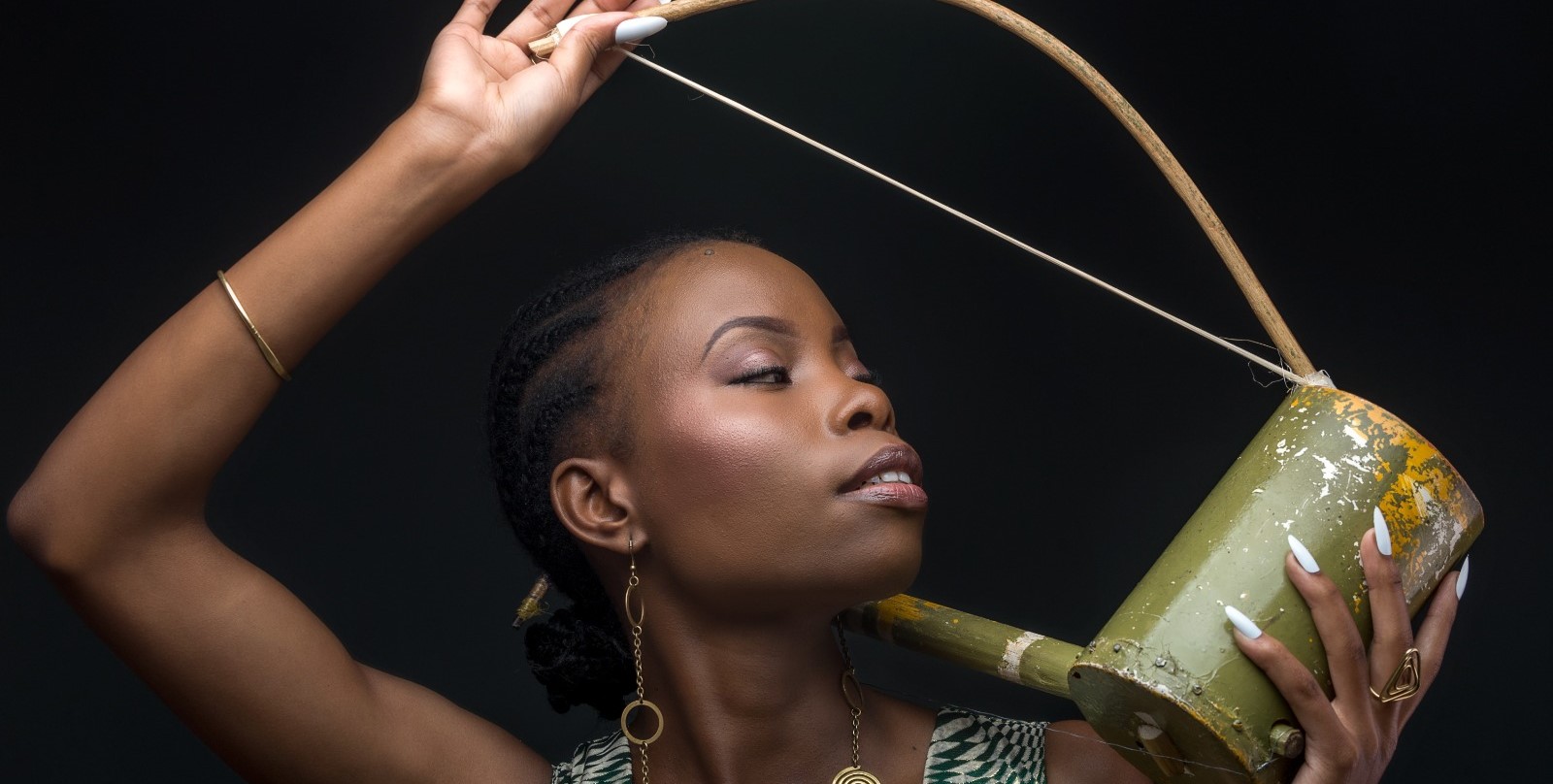Next up in our Limitless series on women succeeding in male-dominated industries, Labdi Ommes is a pioneer in the world of traditional music. She explains why women are her staunchest fans.
Labdi Ommes is a rebel. She has delved into a career as a singer-songwriter whose instrument of choice is the orutu, the one-stringed vertical fiddle. Whilst studying fine art at university, she was told it was taboo for women to play the orutu. “That was reason enough for me to choose it” she says.
Gender-based rules are continuing to limit women’s self-expression, voices and creativity.
The orutu was traditionally played during harvest celebrations amongst the Luo community of Western Kenya. Usually, young men would challenge each other with it. Because of this, it was associated with violence, and women discouraged from playing it. Even today, Labdi is the only woman playing this instrument professionally.
[responsive id=’49141′ name=’2021/10/Labdi-omnes-sq.jpg’]
Sadly, gender-based rules are continuing to limit women’s self-expression, voices and creativity. In Burundi, for example, a law was passed only in 2017 that prohibited women from playing a traditional Royal drum. Labdi is on a personal mission to change this.
[recommended id=49027]
Coming from a family of musicians and feminists, she was supported in her decision to play the orutu. “I didn’t face a lot of backlash from my family. In fact they were supportive. My grandfather was just a bit curious: Is that really the instrument you want to play? There was more curiosity than animosity”.
An orutu teacher at her university “didn’t have an issue showing me how to handle it”. As he was quite busy, he only showed Labdi how to look after it and produce the right sounds. Then she took the instrument home and started practising, teaching herself how to play it.
She used social media to spread her first recording, then went on to play in very “random, dingy places”, counting on her friends for support. By the time she was finishing her degree she was already touring.
It takes strength, courage and thick skin to be a rule-breaker.
It’s not, however, all rosy on the way to the top. Labdi explains how sometimes she has people put money in her clothes, confused by a tipping culture in Kenya. Once someone even shouted at her on stage to “stop masturbating with that instrument”, a level of disrespect she answered to by getting up and off the stage and going home.
It takes strength, courage and thick skin to be a rule-breaker. But it can also be very fulfilling. When touring in London, twice someone fainted in the audience as a result of the power of her music. “To reach someone on an emotional level, on a mental level, spiritually… That’s what keeps me going. It’s my fuel,” says Labdi. “Without this I don’t think I would have continued because it’s a very thankless job.”
Women have played an important part in her career development. “Women are amazing. Women are my biggest supporters,” she says. “The music industry is very misogynistic.” Labdi is clear that female fans are a key support. “Most recommendations, gigs abroad… they come from women”.
[responsive id=’49139′ name=’2021/10/Labdi-omnes-3.jpeg’]
When it comes to creative expression, Labdi says that “the times we live in now, do not allow for creative stagnation. If someone can express themselves, let them do it in the way they see fit. You can’t stifle someone’s creativity because of misogynistic and chauvinistic ideas.”
With thanks to Africa No Filter who made this series possible.
